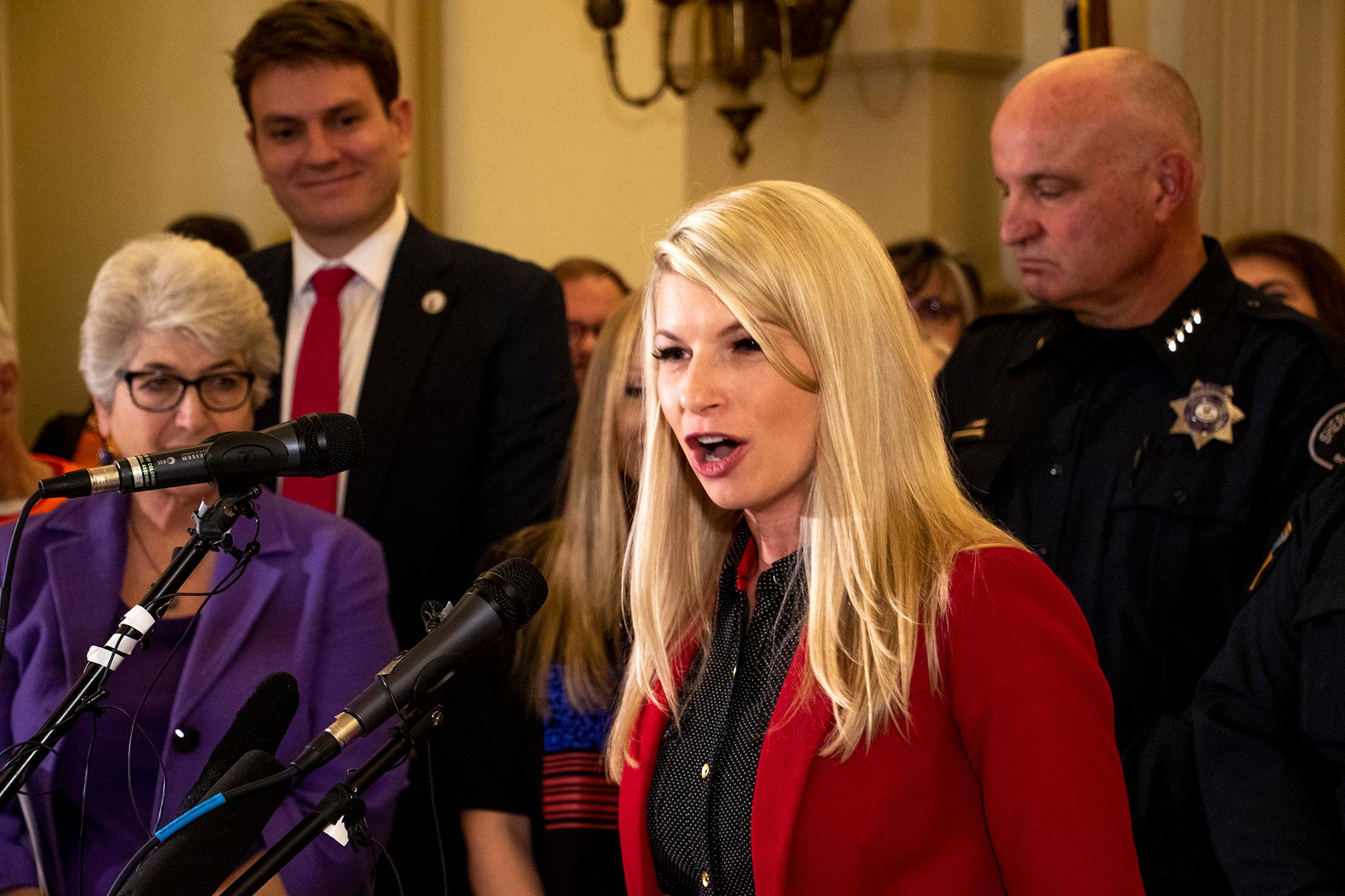A man who was feared by his colleagues, was on the radar of law enforcement, and who had written novels laying out in detail how the main character would kill people -- naming some of the people he would eventually kill on Monday -- wreaked havoc across Denver and Lakewood.
So how was Lyndon James McLeod able to get a gun? Authorities have not released details about the weapon he used, but they collected at least one following the rampage that left five people dead. Security footage and witnesses suggest it was a long gun.
In 2019, Colorado passed a red flag law, which allows family members, co-habitants, and police to ask a judge for what's called an extreme risk protection order, or ERPO. The order can be used to remove guns from someone who is a threat to themselves or others.
Courts in Denver and Las Animas counties, where the gunman most recently lived, and in Jefferson County, where he was known and ultimately died after being shot by police, said they have no record of an ERPO filed against him. The Jefferson County Sheriff's Office would not confirm whether McLeod had a concealed carry permit in the county, and citing the holiday, the Denver Department of Public Safety said Thursday it would not be releasing information about the gunman, including whether the agency ever considered filing an ERPO against him.

State Sen. Brittany Pettersen, a Democrat from Lakewood, was one of four lawmakers who sponsored the red flag bill.
She said the law absolutely could and should have applied in this case, since she characterized McLeod as a threatening person who had written about killing people.
"This is exactly why we brought this law," Pettersen said. "Someone like this should not be able to have weapons."
Pettersen said what happened Monday highlights the need for more education about the law, which went into effect on Jan. 1, 2020. She said police departments need more training, and funding for training, on how to file requests for the order. She called it "disappointing" that such an order wasn't filed against the gunman prior to the mass shooting, especially since the Denver Police Department acknowledged he was on their radar prior to the shooting (Denver police chief Paul Pazen declined to say how the department knew of McLeod). While the gunman's family could have petitioned for an order, members said this week that they had been estranged from the shooter for some time.
"It's heartbreaking when a story like this happens and it was preventable," Pettersen said. "We knew that he was dangerous, and we need to make sure everybody has the information that they need to keep people safe."
Speaker of the House Alec Garnett, a Democrat from Denver who co-sponsored the legislation with Pettersen, said McLeod's writings could have been enough to petition a judge for the ERPO. He too suggested the need to educate the public about the law. He said providing information about the law at places like doctor's offices, mental health provider offices, or even schools would help raise awareness of it.
"I think the question is, do people know it's a resource available to them?" Garnett said.
Last year, during the law's first full year of implementation, 100 petitions were filed in Colorado, according to a report issued by the state Department of Law. Of those petitions, 66 temporary orders and and 49 year-long orders were issued. Police filed the majority of red flag petitions, per the report, and their petitions were granted at a much higher rate compared to those filed by family or household members. But the law remains controversial in certain law enforcement communities. Pettersen said some sheriffs in the state won't enforce an ERPO.
"I think people were concerned that it was going to be used thousands of times, and that's not really how we envisioned it," Garnett said.














